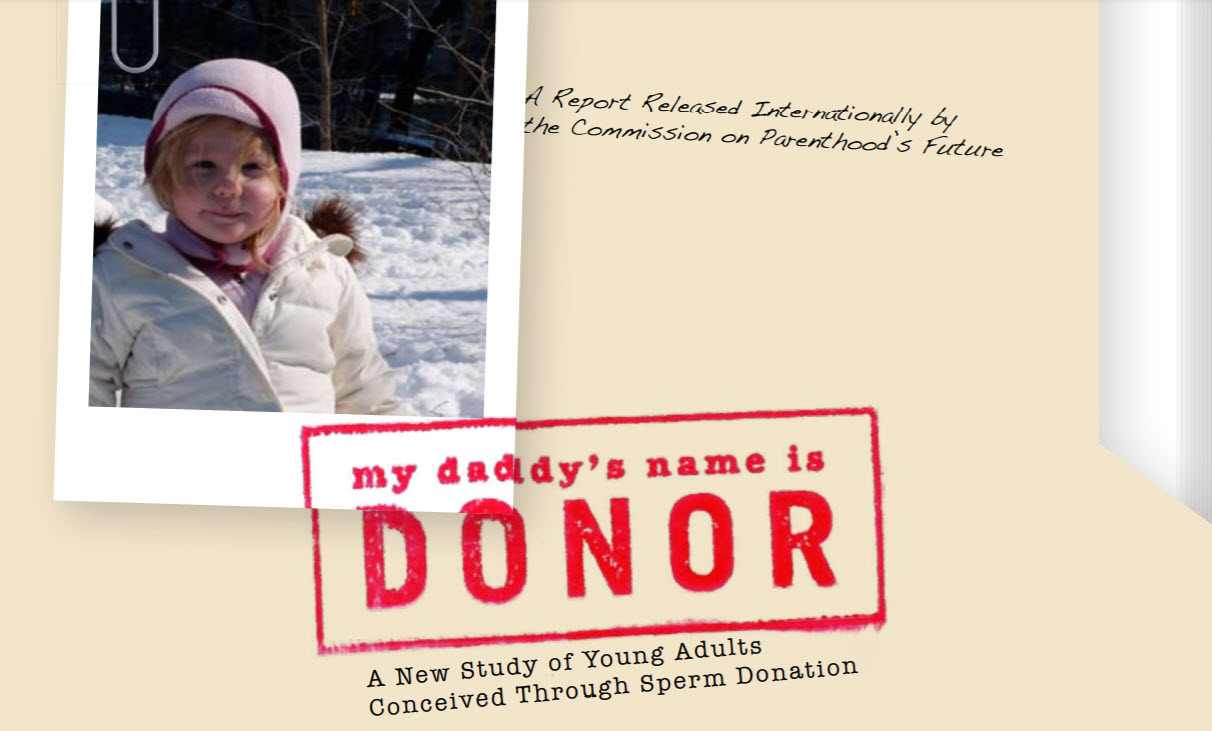Disturbing: Profilic sperm donor speaks out
 A disturbing story in the NZ Herald
A disturbing story in the NZ Herald
“A US sperm donor who has fathered 77 children has revealed what motivates him to liberally distribute his DNA, telling a TV doctor that he “can’t say no”….. The Ministry of Health is saying, how can you be a father to all these children, well, I’m not a father to all these children,” Nagel said. “Obviously I can’t be a full-time dad to all of them.” His Jewish Orthodox family is ashamed of what he does, according to Nagel, and would prefer that he “settle down and have a traditional marriage”. (Exactly!) But Nagel says its “impossible” to be in a relationship while trying to help other women conceive, and he doesn’t plan to stop any time soon.
Here’s the problem.
Thousands of donor-conceived people have a deep longing to know who they belong to, where they come from, and who they look like. What is it like to find out that the man you thought was your dad is not your biological father, that your true biological father donated his sperm and is known only by a number? How does it impact your self-perception, the choices you make, and your view of life and the world? Donor-conceived people are demanding answers to these basic questions about their origins, their lives, and their identities. Anonymous Father’s Day (2013) explores the stories of women and men who are the children of sperm donors. From The Center for Bioethics and Culture.
In 2010, the Commission on Parenthood’s Future released a groundbreaking report My Daddy’s Name is Donor: A New Study of Young Adults Conceived Through Sperm Donation. The report revealed stunning findings about the lives of adult offspring of sperm donation, one of the most common reproductive technologies and one that has been practiced widely in the U.S. and around the world for decades. The study revealed that, on average, young adults conceived through sperm donation are hurting more, are more confused, and feel more isolated from their families. They fare worse than their peers raised by biological parents on important outcomes such as depression, delinquency, and substance abuse.
Moreover, the study found that:
* Two-thirds agree, “My sperm donor is half of who I am;”
* About half are disturbed that money was involved in their conception;
* More than half say that when they see someone who resembles them they wonder if they are related;
* Two-thirds affirm the right of donor offspring to know the truth about their origins;
Of course, none of this is mentioned in the media, is it.






